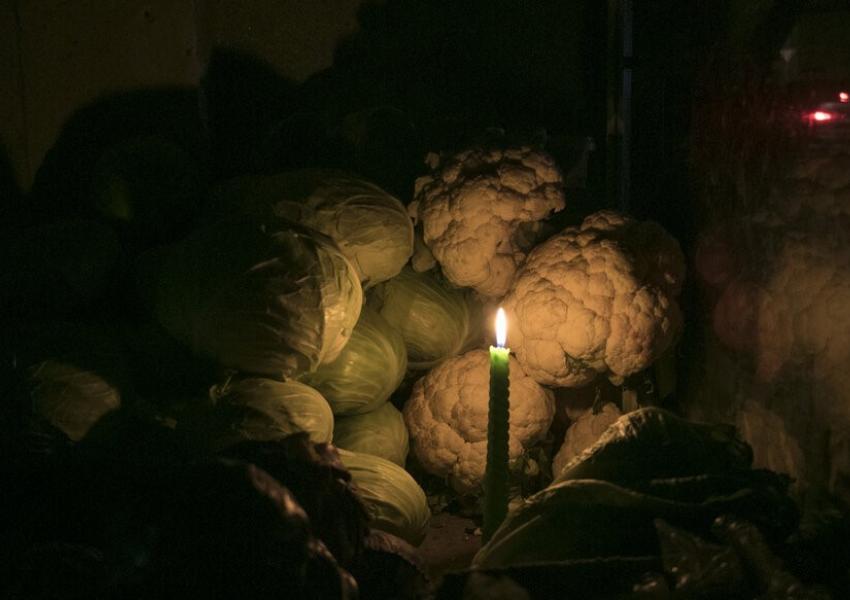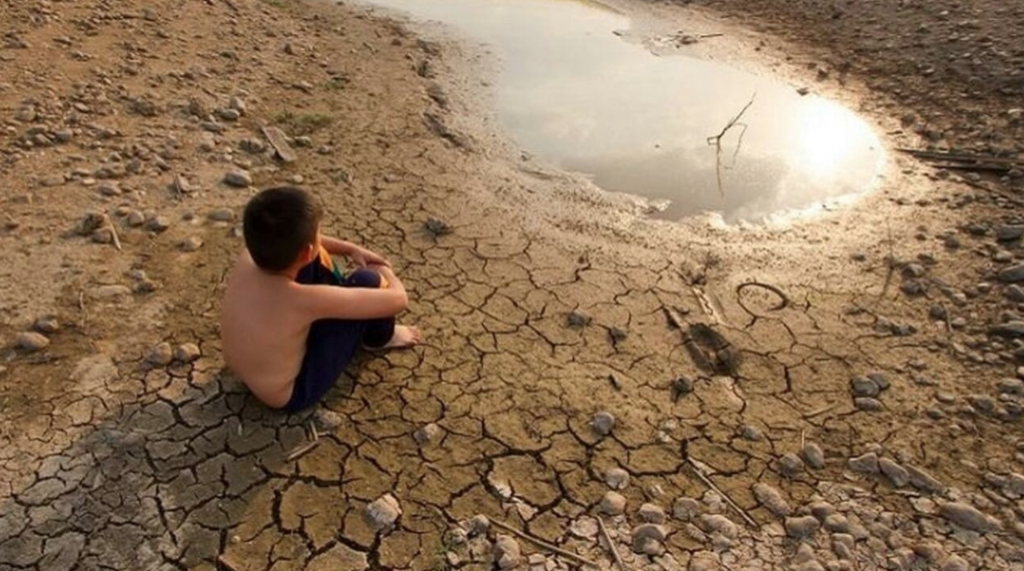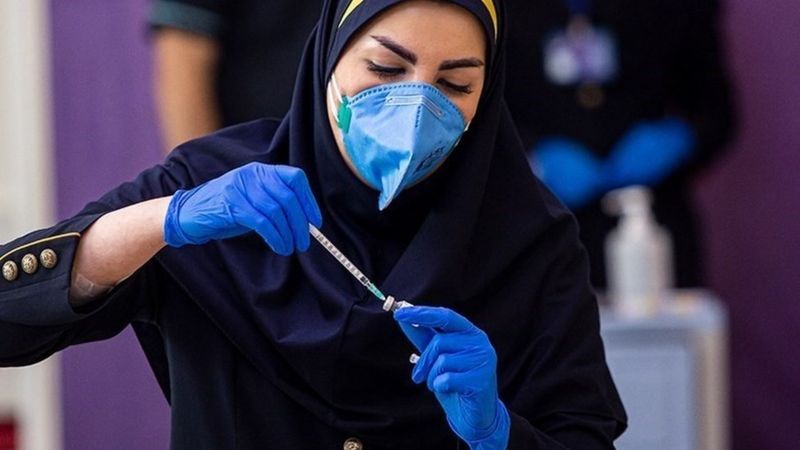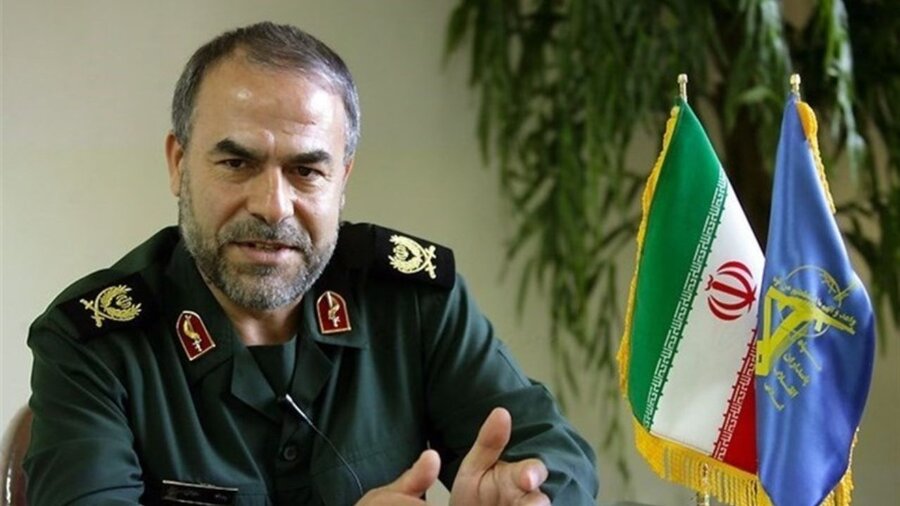
Profiteers From US Sanctions and Forbes Magazine’s Report
Following Forbes’ report on the millionaire boom in Iran, the editorial of Ebtekar asserts that these people are profiting from the US sanctions against Iran, which is why they are against the return of Iran and America to the nuclear deal.
On June 29, Forbes magazine issued a report about the unprecedented millionaire boom in Iran, which points to a catastrophic widening gap in Iranian society. The report underlines how tough US sanctions have resulted in huge profits for certain people and businesses in Iran. According to this magazine, while the average growth of net income is about 6 percent in the word, it is 21 percent in Iran. With 250,000 millionaires, Iran ranks first in the Middle East.
Now, in a country where it has always been claimed that they insist on a “resistance economy” and the fair distribution of wealth, this is highly questionable. The important question is: when the majority of Iranian society is suffering from poverty and skyrocketing inflation, how have tens of thousands of people made such profits? How come that despite the tough US sanctions against Iran, some people have been able to create such capital for themselves thanks to sanctions, rent-seeking, inflation, and people’s frustration? What do the tough opponents of the nuclear deal have to say in this regard?
Forbes’ report clearly shows how people’s tables have shrunk, while certain people have been able to acquire considerable wealth for themselves. Isn’t it time for the “hardline principlist” public figures who are against the nuclear deal and attack the country’s nuclear negotiators every day to give an explanation in this regard? Why should innocent people pay the price for such measures against the deal?
It is evident that Iran’s closed economy has paved the way for certain people to make colossal profits. It seems that the sanctions are nothing but a blessing for these people. Meanwhile, those who are against the nuclear deal do not know how they are sacrificing the Iranian people by sticking to their own guns.
The report clearly shows how backing the sanctions has direct ties to certain people’s profits and poverty in Iranian society.
Why Is the JCPOA in Limbo?
The editorial of Tejarat stresses that if Iran cannot reach an agreement over returning to the nuclear deal, it will have severe consequences for the Iranian people.
Between 2011 and 2013, Iran was under pressure from sanctions due to the aggressive policies of “hardline principlists” in the country and the UN Security Council had issued six resolutions against Iran. But with Rouhani’s government taking office and adopting more lenient policies and direct negotiations with the United States, the nuclear deal (JCPOA) was signed between Iran and the P5+1 in 2015. From the beginning, “profiteers from sanctions” within the country were against the deal.
While Trump’s administration called for direct talks with Iran, the Iranian diplomatic apparatus decided not to come to the table. Then in 2018, Trump pulled out of the deal and imposed heavy sanctions on Iran.
With Joe Biden entering the White House, there was hope that both America and Iran would return to the JCPOA. While Americans announced they were ready to return to the deal step-by-step, the Iranian side called for lifting all sanctions at once. Because of the Iranian Parliament’s strategic law, Iran increased enrichment to 20 percent and then 60 percent, which has made the West and the IAEA concerned.
After Biden took office, Iran decided not to talk with America directly and instead Iranian lawmakers made threats against the Western parties to the deal and set deadlines for the IAEA. Now, the nuclear deal is in limbo.
Now the question is: isn’t it time for a de-escalation policy?
The change in the tone of US officials and the recent US attacks against Iran-backed militias on the Syria-Iraq border indicate that reaching an agreement has become less likely. If US sanctions continue and tensions between Iran and America escalate, the Iranian people will have to face the consequences. With the continuation of sanctions, Iran will not be able to sell oil and the country’s forex revenue will drop – which will result in more inflation, a decrease in purchasing power, a drop in the value of the national currency, and people’s tables will shrink more.
Iranian Economy Suffers From Lack of Foresight
The editorial of Tejarat, penned by the spokesperson of the Parliament’s Economic Commission Gholamreza Marhaba, advises the next Iranian government on how to deal with serious economic problems in the country by using scientific methods.
One of the main issues Iran’s economy is grappling with is the massive amount of liquidity – a challenge which threatens the 13th government as well. The value of the national currency has consequently dropped, inflation has gone up, and people are hurting. The next government must find a solution for this problem.
The important point is the impact of Dutch disease on the country’s economy. If Iran’s blocked money is released and oil revenues return to the country, the next government must be careful not to allow the country’s economy to suffer from Dutch disease and must protect the manufacturing and industrial sector.
The next government must also try to help manufacturing units to overcome recession, because with high inflation and the daily increase of prices of raw materials and wages, they cannot manage their financial issues and will be shut down.
The other issue is unemployment. The next government must not repeat the mistakes of the previous governments, which granted self-employment loans to unemployed people. These loans only created debts for unemployed people. The governments then claimed that they were creating more jobs in this way, while no jobs were created at all. Giving loans is not the solution to the problem of unemployment.
The main issue is the drop in the national currency and the pressure on the middle class. In the past, the middle class in Iran had a relatively good life – just as in other developing countries like India, China, and Brazil. But now the middle class is hurting and the next government must find a way so that the middle class can enjoy a good standard of living.
All these cases are due to the lack of scientific planning and the inability to forecast the future of the country’s economy; that must be the center of the next government’s attention. Many economic crises in the country are scientifically predictable.
Under these circumstances, the 13th government must follow the scientific principles that are accepted all over the world to solve the country’s economic problems.
Rouhani Misleads People About the Dollar’s Price
President Hassan Rouhani, towards the end of his term, made claims about the dollar’s spiking price, blaming it on the former US administration’s economic pressure and the coronavirus outbreak. The editorial of Aftab Yazd calls his claim false and groundless, saying that Rouhani is shirking responsibility for his government’s poor performance.
In his recent speech, Hassan Rouhani claimed that were it not for former US President Donald Trump and coronavirus, the dollar’s price would be under 5,000 tomans in Iran (it is now at 25,000 tomans per dollar). His remarks show that he doesn’t believe that mismanagement and poor performance have played a role in creating the deteriorating situation. In fact, he holds that his government has had no role in whatever has happened, and were it not for his government, the situation would be worse.
Of course, it must be acknowledged that Trump and coronavirus have had a significant impact on the country’s economic conditions, but not as big as Iranian officials claim.
It is fair to say that Rouhani’s government has had many problems: from dealing with the media which was unjustifiably conservative to the inability to address people’s demands. And this is just a partial list of the shortcomings and problems of Rouhani’s government.
By blaming all problems on Trump and coronavirus, Hassan Rouhani tried to mislead journalists and experts. Technically speaking, his claim is not true. Before the coronavirus outbreak, the price of the dollar in Iran had reached 20,000 tomans. Furthermore, it is absolutely correct that with Barack Obama’s administration going out and Donald Trump taking office, the nuclear deal (JCPOA) faced serious challenges. But there was no management or attempt to contain the situation. When America pulled out of the JCPOA, Hassan Rouhani’s response was to say: so much the better! He went on to claim that with the United States withdrawing from the deal, the JCPOA would continue with the European parties. But no such thing happened and the dollar’s price shot up.
Despite the unrelenting US pressure on Iran, Rouhani’s claim about the dollar’s price is not correct.

Extensive, Recurrent Power Outages in Iran Trigger Protests, Assemblies

With the rising temperature, Iranian citizens have been facing frequent, unannounced power outages – ranging from four to eight hours per day – which has led to unbearable conditions, especially in the southern provinces with a temperature of more than 50 degrees Celsius.
A number of people in several cities, including Gonbad Kavous, Kordkouy, Agh Ghalah and Kazeroon held assemblies in front of power companies in their cities. Some people blocked roads in Kordkouy and assembled in front of the governor’s office. In Esfahan, Anzali port and Gaz port, bakers staged assemblies in protest against the continuation of the blackouts.
Eastern Tehran witnessed people chanting “Death to Dictator” and “Death to Khamenei” during the nightly blackouts at their windows. Video clips published on social media also show people chanting “Death to the Islamic Republic” in western Tehran.
A social media user in Iran tweeted: “An ordinary day under the Islamic Republic: No electricity, no mobile Internet. Some even do not have water due to water pumps not working. No ATMs. Shopkeepers, unable to work, stand in front of their shops, cursing. Delta variant of coronavirus is raging. People in Venezuela, Afghanistan and North Korea should be happy they are not living in Iran.”
Extensive power outages began last fall in Iran. Since then, officials have kept making excuses: in winter, they blamed gas shortages and in the spring, they pointed to the emptied dams, the reduction of power production by hydroelectric plants and the increase in bitcoin mining as the reasons.
In the midst of unannounced blackouts which last for hours day and night, a Parliament member said they are nowhere near their end. “We’ll have the same conditions at least for another month,” noted Mostafa Nakhaei, spokesman for the Parliament’s Energy Committee.
Water Crisis in Iran; People in Khuzestan Stand in Line to Buy Water, Says Lawmaker

While the southern provinces of Iran, particularly Sistan and Balochistan and Khuzestan, have faced new waves of coronavirus, people in these provinces must also grapple with the water crisis and power outages. Officials have cautioned that water shortages and power outages will become more critical in the coming weeks.
In some cities of Khuzestan province like Hoveyzeh and Dasht-e Azadegan, people stand in line to buy water, according to Ghassem Saedi, Dasht-e Azadegan’s representative in the Parliament.
He underlined that the water crisis is worse than coronavirus and is catastrophic. In many villages, Saedi added, people cannot access water due to the drying of rivers. Criticizing the performance of the Energy Ministry and the Department of Environment, he said: “This year the whole of Khuzestan is facing a water crisis” and the condition of Horolazim wetland is “one of the worst environmental catastrophes in history.”
In the meantime, CEO of Water and Wastewater Company Hamidreza Janbaz denied rationing water, saying “we have not reached that situation yet, but this summer we are going to face very tough conditions in some provinces.” Currently, 304 cities are dealing with water shortages, while 101 cities are in the red zone regarding the supply of water. He called the situation in Sistan and Balochistan “critical.”
Moreover, MP Malek Fazeli from the city of Saravan highlighted the water crisis in some cities of Sistan and Balochistan province, calling for increasing the number of water tankers in these regions.
While Iranian officials blame the water crisis on drought and the decrease in precipitation, international studies show that the unbridled use of Iran’s underground water is the main cause. “Water bankruptcy” in Iran, according to experts, is because of mismanagement of existing crises.
Iran’s Fifth Wave of Coronavirus: Delta Variant Has Extensively Spread in Each and Every City, Says Official

More than half of Iran’s provinces are now grappling with the Delta variant of COVID-19. Sistan and Balochistan, however, is in a highly critical situation: there are no empty hospital beds, the daily death toll hits new records and the cemeteries are filled, while the health minister even refuses to answer the calls of the governor of this province.
According to the spokesman for the National Headquarters to Combat Coronavirus Ali Reza Raisi, the Delta variant has spread all over Iran. In the same vein, President Hassan Rouhani pointed out that the country’s recent presidential election, as well as the city council elections during which many “parties were thrown in some places,” contributed to the spread of this disease.
Meanwhile, Sistan and Balochistan Governor Ahmad Ali Mouhebati announced some shocking statistics in this regard: every day more than 1,200 individuals’ contract coronavirus and 19 lose their lives in this province. The statistics in Sistan and Balochistan is the same as that of the entire country of Pakistan whose population is 220 million, he added. Mouhebati also remarked that one of the reasons for the rapid spread was the city council elections.
In addition, MP Moidine Saidi noted that Sistan and Balochistan has the weakest healthcare infrastructure in the country; some of its cities “do not even have one infectious disease ward.” He also criticized the vaccination process in the province, saying it does not correspond with the rampant spread of the disease. He added that health ministry officials, instead of being held accountable, are accusing others. According to the secretary of the Coronavirus Scientific Committee, the Delta variant was initially identified in Sistan and Balochistan in March.
Meanwhile, Iranian authorities are busy producing coronavirus vaccines – so far seven – without expediting the vaccination process.
IRGC Political Deputy: People Will Savor the Sweet Taste of Life Under Velayat-e Faqih

Amid power outages, the water crisis, the mismanagement of the coronavirus outbreak, an IRGC senior official made promises with regard to the quality of life under Velayat-e Faqih [the supreme leader].
IRGC Political Deputy Yadollah Javani has promised the Iranian people a “sweet life” and a “very promising future” under Velayat-e Faqih after their “smart behavior” in the recent presidential election and parliamentary election of two years ago – the outcome of which resulted in perfect harmony between the executive, legislative and judicial branches.
This IRGC official stated that the survival of the 1979 revolution is not possible unless corruption is uprooted, and justice served. Questioning people’s current “unsuitable conditions” despite the revolution’s goals, he noted: “One of the key reasons for these unacceptable circumstances which has reduced and damaged the Islamic regime’s social capital is definitely lack of cohesion and unity in the regime’s ruling body and its pillars over the years.”
Javani continued that by convergence between the three branches, as well as people’s participation and their adherence to Velayat-e Faqih, “the real transformation will take place and people will savor the sweet taste of life in a Velayi system [under the supreme leader].”
These words were stated at a time when people are struggling with extensive power outages, among other hurdles, and Iranian President Hassan Rouhani’s only response is that they should simply tolerate it: “I saw that even in European countries sometimes the entire country’s electricity is completely cut off and suddenly there is an outage for 24 hours.”
Rouhani stated that the “inevitable” blackouts would continue in the upcoming weeks without giving any specific reasons. Speaking at the cabinet session, Rouhani remarked that the Energy Ministry is not responsible for the outages; at the same time, he asked his energy minister to explain the reasons to people.
Repeated blackouts in the midst of the coronavirus crisis have not only inflicted substantial damage on people’s businesses but has increased the death toll in hospitals.
